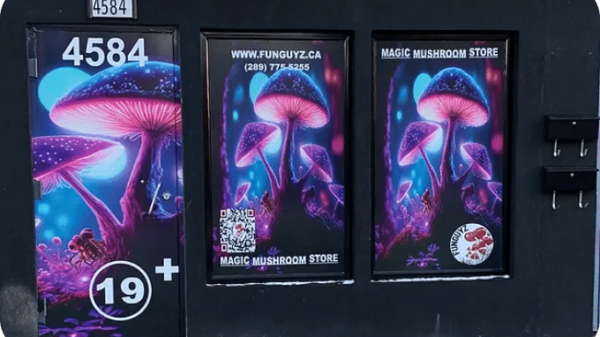Although British Columbians have typically handled cannabis transactions face-to-face, it’s no surprise that a third of the province’s licit market shoppers now prefer to shop in the absence of other people.
That’s according to a recent survey, commissioned by P.E.I.-based producer Figr Brands, Inc., showing that 33 per cent of B.C.’s cannabis consumers prefer online shopping — slightly behind the national average of 43 per cent.
B.C. has been relatively slow to warm to the idea of private online sales, but made a permanent regulatory change last week to allow click-and-collect for licensed retailers. Pre-pandemic, you could only make online purchases on the provincial store’s website.
Read more: BC amends regulations to allow online cannabis sales for pickup
The preference has markedly increased since the first year of legalization. In December 2019, Statistics Canada reported that only 13.3 per cent of the country’s bud buyers did so via the internet.
B.C.’s regulatory change, combined with the teased possibility that online delivery will open up as well, suggest the trend toward e-sales will continue. An intermediary measure introduced in March allowing people to reserve, but not buy, products online has been popular at some Vancouver retailers.
The Figr-commissioned data are part of the Maru Voice Canada Omnibus, which regularly polls over 1,500 Canadians. Other stats related to weed buying habits show: 32 per cent of B.C. cannabis consumers said they would prefer a conversation with a budtender at a retail store; 31 per cent prefer asking a friend; 25 per cent prefer to research products online on their own; and 9 per cent prefer reading reviews or recommendations online.
To the folks at Figr, the numbers could indicate that people are feeling more knowledgeable when it comes to picking the right product, and more comfortable doing so at home.
For their own business strategy, senior brand manager Andrew Quinlan says the shift means both that their brand has to be present in those environments, and that they’re providing any information a potential customer could be looking for.
“For a consumer coming online looking at products, and they know what they’re looking for — be it anything from THC strength to the terpene profile — if that information isn’t provided, then there’s a chance they may not select your product, even though they might like it,” he says. “So what we’re doing is ensuring the information we have — and we have lots of it, and we pride ourselves on transparency of information — is appearing in these online retail environments.”
Read more: Why including terpene content on weed packaging is common scents

Figr’s Sentri program, found on its website, allows people to track cannabis “from seed-to-sale.” Screenshot taken Aug. 8, 2020
Among Canada’s producers, Figr has been notably ahead of the curve when it comes to providing detailed product information, publishing terpene quantity as well as the ability to trace specific products back to their mother plant. The company has also developed its Budtender app as a mobile knowledge platform for its offerings.
Citing data that over half of consumers rate transparency of ingredients as a top product consideration, Quinlan underscores Figr’s focus on showing consumers exactly what their products are.
When you’re managing brands like Tylenol, Nicorette and Folgers, like Quinlan has, well-established insights pave a relatively smooth path forward. But the road forward for cannabis is still being discovered day-by-day.
“So having these stats that we have — like that 50 percent of consumers rank trust as a top consideration — those are those are gold in terms of marketing and to best understand the consumer,” he says. “Uncovering these insights and having still so many uncovered is one of the biggest things I’ve experienced in cannabis.”
Figr’s flower and vape cartridges became available in B.C. this April. Figr is a wholly owned, indirect subsidiary of Pyxus International, Inc. (NYSE: PYX).
Top image by GoToVan via Wikimedia Commons
nick@mugglehead.com
@nick_laba















John Partyka
August 23, 2020 at 8:45 am
The article failed to report the main reason people are buying their cannabis online. PRICE. Why would anyone want to buy an ounce of pot at a store for $300+ when they can buy an ounce online for $50?The store product quality is no better than what you can buy online either.
Nick Laba
August 24, 2020 at 10:45 am
Hi John. This article is referring to legal cannabis sales, which are identical online or in-store (or close to it). I believe you are referring to illict- or grey-market sales, which will be less expensive than the legal market. New data from Statistics Canada suggest that non-legal cannabis sales are still greater than legal sales. To address your point directly, it should be noted illicit cannabis can still be bought for similar prices at different venues: online, at storefronts etc.